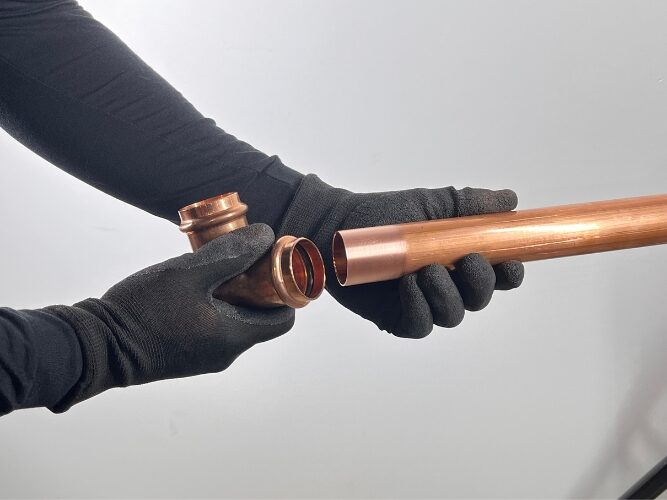Viega Collaborates with ASTM to Publish Standard for Installation of Press Connections

Viega is proud to announce the publication of the ASTM B1029: Standard Practice for Press-Connect Joints with Seamless Copper and Copper Alloy Tube and Press Fittings. ASTM is a global organization that develops and provides standards for various industries and applications. Viega took part in a rigorous consensus process to document best practices for creating press-connect joints. The new ASTM B1029 standard aims to enhance the reliability, efficiency, and adoption of press-connect technology in its approved applications by providing a standardized practice to be used industry-wide.
As a leader in the industry, Viega's history, expertise, and innovative approach was instrumental in shaping this standard. Their commitment to innovation and quality is reflected in ASTM B1029, which aligns with the company's mission to provide solutions that meet the highest industry standards. By collaborating with ASTM, Viega aims to support the widespread adoption of press-connect technology, offering engineers and installers a reliable, predictable, and efficient alternative to traditional joining methods.
Call to Action for Engineers and Specifiers Viega encourages engineers, specifiers, and installers to incorporate ASTM B1029 language and practices into their projects to take advantage of the benefits offered by press-connect technology. The standard provides a clear framework for achieving optimal joint integrity and system performance.
Benefits of Press-Connect Technology Include the Following:
• Fast: Press-connect fittings significantly reduce installation time compared to
traditional methods.
• Safe: Eliminates the need for open flames or chemicals, reducing the risk of fire and
exposure to harmful substances.
• Versatility: Suitable for a wide range of applications, from residential plumbing to
complex industrial systems.
• Consistent: Simple connections create less variability between installers and more
reliable systems.




